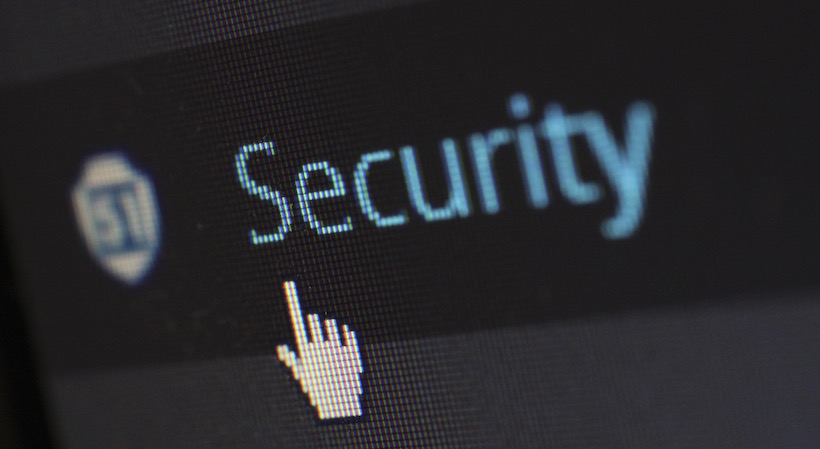The last thing you want to think about when starting a small business is your proprietary data and financial account information suffering a breach. Cybercrime is a big deal. It costs companies $1.79 million every minute from malicious apps and online payment fraud.
However, financial losses aren’t the only headache such cybersecurity breaches cost small enterprises. They can also endure sometimes irreparable damage to their reputation. While larger businesses have the brand recognition and press to recover, not all smaller companies can.
Therefore, securing your networks is essential for small-business owners. It’s not an expense to put off until later, hoping you can skate by with less until you generate more income.
Meetings in the Metaverse: A Step-By-Step Guide to Creating a Virtual Office
You still need the most cost-effective approach, including understanding your vulnerabilities. Here’s when startups are most susceptible to cyberattacks.
- When establishing networks
It isn’t surprising that cybercriminals strike when setting up your business networks. They understand that it takes time to install antimalware software on every device and train your employees on the correct procedures.
Before loading proprietary data and personally identifiable client information into your systems, you should attempt to reach SOC 2 compliance. These service organizational control reports ensure that you store, transmit, process, maintain, and dispose of data correctly in alignment with guidelines from the American Institute of Certified Public Accountants (AICPA). Achieving a stellar report reassures clients you’ll treat their data with the highest respect, which inspires trust.
How can you establish a secure network that adheres to SOC 2 principles? It helps to understand critical defense terminology and the layers of protection required:
- Firewalls: These isolate one network from another. They come in hardware and software models, with some operating as standalone devices like routers or servers.
- Intrusion detection systems: These spot hackers or malicious software on networks so you can take immediate action to prevent a breach and defend against similar intrusions in the future.
- Proxy servers: These act as negotiators for client software requesting information from other servers.
- Network access control: These restrict network access to only endpoint devices that comply with your security protocol, such as a company-issued laptop.
- Web and spam filters: These prohibit users from accessing potentially risky websites or opening emails that contain phishing attacks.
Your best bet is to hire a qualified computer security specialist to establish your networks. Brainstorm critical aspects of your policy and write your cybersecurity plan before setting up your systems, as making later changes can create headaches and issues with noncompliance.
What Small Businesses Can Do to Thwart the Top 5 Cybersecurity Threats
- When hiring new employees
A business is only as secure as the staff it hires. You can have the most secure network, but the wrong person could still cause substantial damage if you fail to conduct proper pre-hire screenings.
When conducting background checks, please ensure you use legally compliant third-party providers. Otherwise, you risk potential staff members exposing their Social Security numbers and other personal information. These don’t come for free, so save this step until you make a contingent job offer based on successful screening completion.
What should you look for? Use your common sense, but recent offenses concerning financial matters are obvious red flags. Conversely, a cannabis bust that happened 20 years ago before the laws changed isn’t necessarily cause for concern. If you feel unsure, it’s fine to contact the candidate and ask follow-up questions.
- When collecting and sending data
Hiring the best people matters because breaches don’t only occur via computer and cellphone access. Let’s say you run an accounting firm. Your clients routinely volunteer sensitive information that your staff members might jot down in a hurry. Do they understand that they must immediately shred such documentation?
The world has gone virtual, and it’s none too soon for the environment. However, meeting clients via Zoom also opens the possibility of data breaches. To prevent snoops from dropping in, please limit whom you distribute access codes to and use a green room or waiting room to prohibit participants from entering before the host commences the meeting.
Furthermore, train your staff to disable the virtual-assistant features on their phones before going into meetings where they might discuss sensitive information. Besides, it’s rather embarrassing to have Siri interrupt your client’s reply with, “Could you please repeat that?”
- When on the road
Staff training is essential, especially if your team travels off-site. Install VPNs (virtual private networks) on work-issued computers and require contractors to use them when working in transit. Hotel Wi-Fi networks are completely open, leaving them vulnerable to snooping from others at the same facility.
However, clever thieves don’t even need a room key to eavesdrop on conversations or look over your shoulder while you type away on your tablet. Prohibit behaviors like meeting clients in coffee shops to fill out benefits forms where passersby could overhear spoken credit card or Social Security numbers or copy this sensitive information from your screen.
Anti-glare screen protectors cost little but do a fabulous job of preventing snooping, as you see only blankness if you aren’t at the precise angle. Furthermore, they make it possible for your staff to work outdoors without getting a screaming migraine from the glare – a nice little perk.
- When undergoing mergers and acquisitions
Your young company began showing such stellar results that a larger enterprise decided they wanted to buy in and expand your operations. Congratulations! But watch out for cyberattacks.
Startups are most susceptible to cyberattacks during mergers and acquisitions. Criminals acquire non-publicly available information they use as leverage to extort victims and get them to comply with ransom demands. For example, they may threaten to release proprietary data that could influence a company’s stock price.
- When allowing outside visitors
Finally, your startup’s data is susceptible to cyberattacks from outside visitors. It’s crucial to establish building ingress and egress. Doing so protects your information and staff in an age when mass shootings have become an American tradition.
Consider installing a keyless entry system and allowing only select individuals to know the codes. Video cameras are also a must. They can help police identify the thief in the case of a break in, if nothing else. Remember those inexpensive anti-glare screens? They can protect data from prying eyes – they’re a must if you see frequent visitor traffic.
When startups are most susceptible to cyberattacks
Cyberattacks cost businesses millions of dollars every minute. A breach can have a huge financial impact and irreparably damage your reputation. Stop them before they strike. It helps to understand when startups are most susceptible to cyberattacks. By addressing the vulnerabilities listed above, you can protect your client data and your bottom line.






